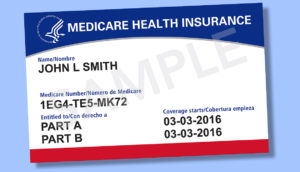Dear Liz: I am planning to retire in a few months at 65. My husband, who is five years younger, works for a corporation that provides excellent health insurance. When I sign up for Medicare, will I still be able to stay on my husband’s health insurance? Which insurance will be listed first for coverage?
Answer: The rules are different depending on whether your husband’s insurance is considered a large employer plan or a small employer plan.
If the plan covers 20 or fewer employees, his employer can boot you off the plan or make it secondary to Medicare. If the plan covers more than 20 employees, though, the employer typically can’t treat you differently from younger employees and spouses and must allow you to stay on the plan, which would remain your primary insurance with Medicare as the secondary insurer.
Medicare penalties are another issue to consider. Medicare Part A, which covers hospital visits, is usually premium-free, but people generally pay premiums for Medicare Part B, which covers doctor’s visits, and Medicare Part D, which covers prescription drugs. If you don’t sign up for Medicare Part B and Part D when you’re first eligible, you could face permanent penalties that would raise your monthly premiums for life.
These penalties don’t apply if you put off signing up for Part B and Part D because you’re covered by a large employer health insurance plan from current employment, either yours or your spouse’s. Once that employment or coverage ends, though, you’ll need to sign up for Part B and Part D promptly or the penalties kick in.
Notice the use of the words “typically,” “normally” and “generally” in the paragraphs above. Medicare’s rules and exceptions can be tricky to navigate. Talk to the benefits manager at your husband’s company so you know where you stand, and what parts of Medicare to sign up for as you turn 65.
 Today’s top story: Understanding the differences between Medicare and Medicaid. Also in the news: How hungry college students can get help, Robinhood takes another shot at cash management accounts, and a new scam that asks for your bank PIN on the phone.
Today’s top story: Understanding the differences between Medicare and Medicaid. Also in the news: How hungry college students can get help, Robinhood takes another shot at cash management accounts, and a new scam that asks for your bank PIN on the phone. Today’s top story: What will long-term care cost you? Also in the news: Social Security myths, the best cities for first-time home buyers, and how to pay less to your credit card company.
Today’s top story: What will long-term care cost you? Also in the news: Social Security myths, the best cities for first-time home buyers, and how to pay less to your credit card company.